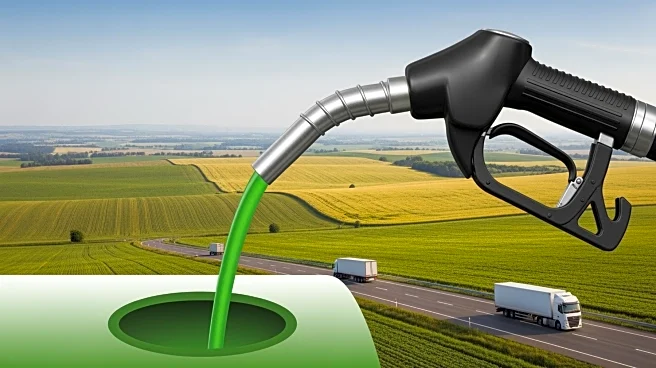What's Happening?
A new biodiesel blend, B-99, is gaining attention in the U.S. farming and trucking sectors. Made almost entirely from soybeans, cooking oil, and animal fats, this renewable fuel is being adopted by companies like PepsiCo and Archer-Daniels Midland (ADM)
to reduce carbon emissions. The fuel is used in heavy-duty trucks with a system developed by Optimus Technologies, which allows engines to start with regular diesel before switching to biodiesel. This system prevents the biodiesel from gelling in cold conditions. The first retail pumps for B-99 have been established in Illinois and Iowa, with PepsiCo operating over 700 trucks using this technology.
Why It's Important?
The adoption of B-99 biodiesel represents a significant step towards sustainability in the U.S. transportation and agriculture sectors. By utilizing a renewable fuel source, companies can reduce their carbon footprint, which is crucial in the fight against climate change. For farmers, particularly soybean growers, this development could increase demand for their crops, potentially leading to higher prices and more stable incomes. The shift also supports national energy independence by reducing reliance on fossil fuels. The success of this initiative could encourage further investment in renewable energy technologies.
What's Next?
As more companies adopt B-99, the infrastructure for biodiesel distribution is likely to expand. This could lead to increased availability and potentially lower costs for the fuel. Stakeholders, including environmental groups and government agencies, may push for policies that further incentivize the use of renewable fuels. Additionally, the success of B-99 could inspire similar innovations in other sectors, promoting a broader transition to sustainable energy solutions.
















